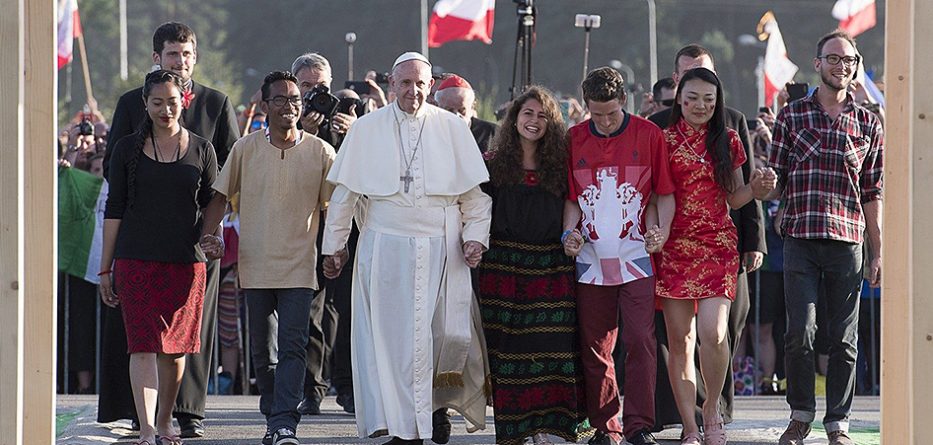My colleague Rafael Luciani is one of the world’s leading experts on the topic of synodality, the experience of “walking together” rooted in the spirit of the Second Vatican Council that Pope Francis has called on the Catholic Church to embrace.
Luciani, a native of Venezuela, serves as a theological expert for the regional Latin American Episcopal Council (CELAM) and the Confederation of Latin American Religious (CLAR).
He is also one of three Latin American theologians invited as expert advisers for the theological commission of the secretariat for the next Synod of Bishops. Earlier this year, Francis expanded the upcoming synod: It will begin with a diocesan phase this fall, followed by continental meetings next year, and will conclude with a general assembly at the Vatican in 2023.
We spoke earlier this month about synodality, why some Catholics seem reluctant or unwilling to consider this way of being church, and what it means that Xavière Missionary Sr. Nathalie Becquart, his former student, will be the first woman serving as a voting member at a Vatican synod.
Following is our interview, which I translated from Spanish and edited for length and clarity.
To read the full interview, click here.
Hosffman Ospino is a professor of theology at Boston College, where he chairs the Department of Religious Education and Pastoral Ministry. He has conducted several national studies on Hispanic Catholics.
With thanks to the National Catholic Reporter (NCR) and Hosffman Ospino, where this article originally appeared.








